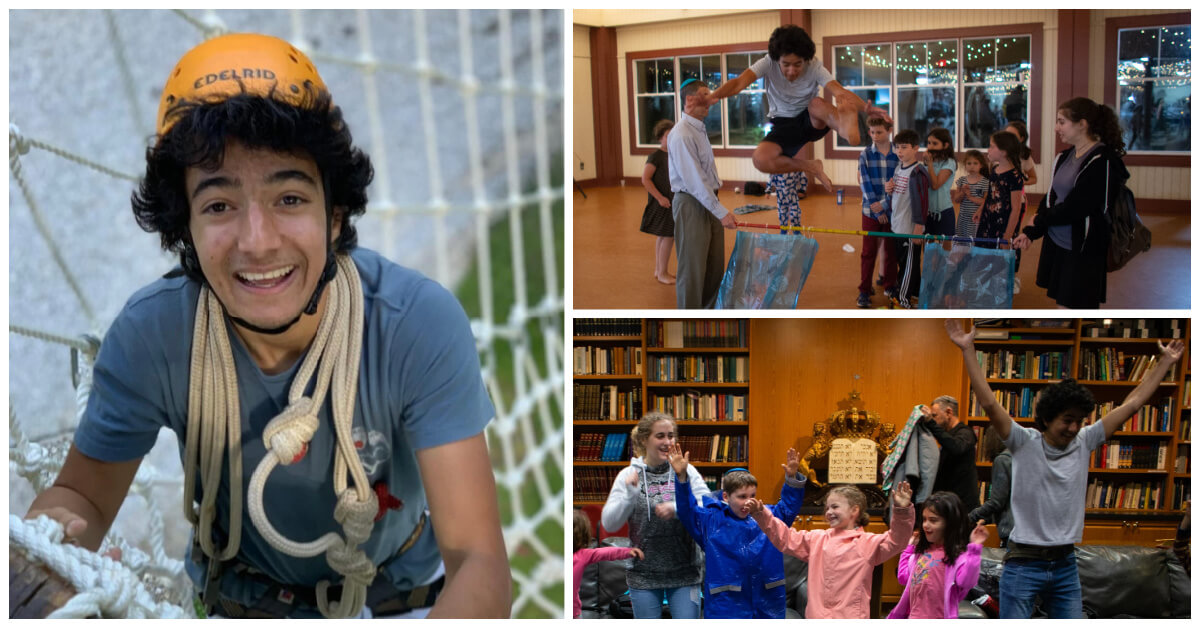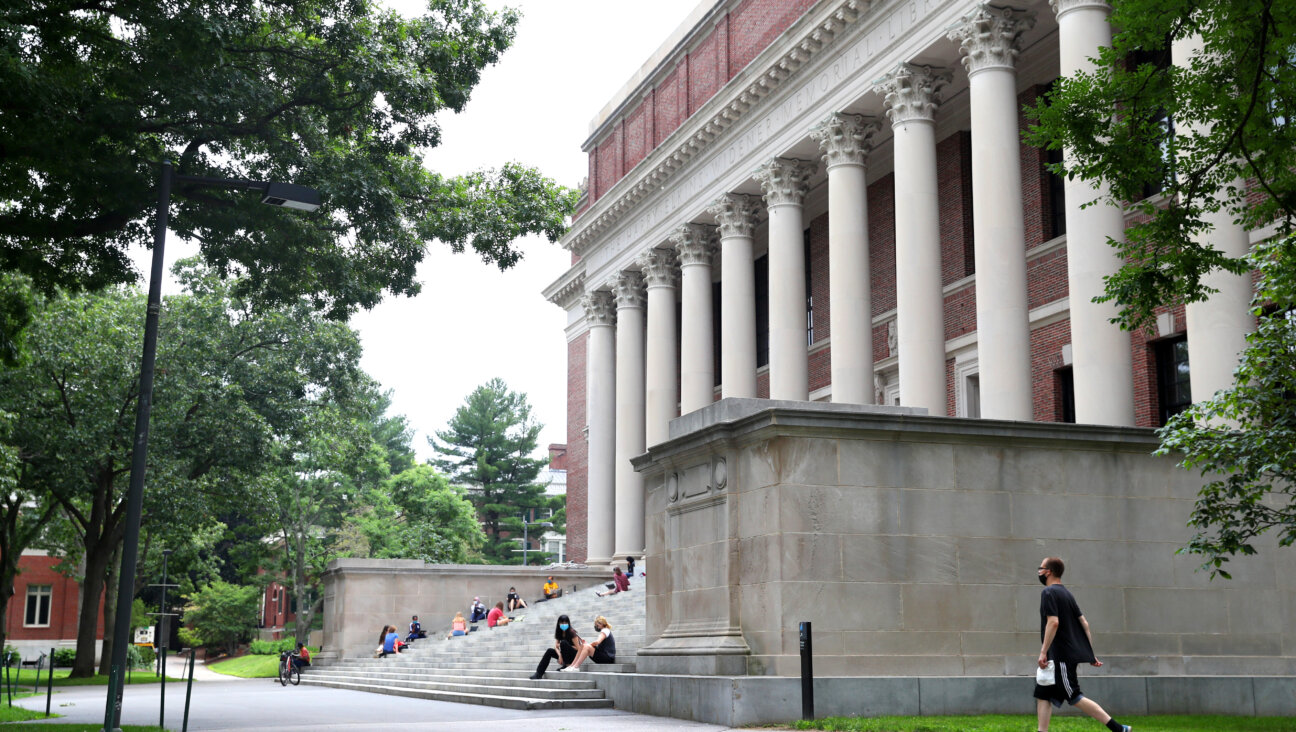Russian Council Feud Heating Up After Kremlin Snub
MOSCOW — A three-year turf war for the soul of Russian Jews has heated up in recent days, as rival community councils — one espousing pluralism, the other dominated by Lubavitch chasidim — have taken their feud to new arenas including rabbinic recruitment and international diplomacy.
The two groups, the Russian Jewish Congress and the chasidic-led Federation of Jewish Communities of Russia, both claim to speak for the nation’s 300,000 Jews. They have rival chief rabbis and compete for funds, influence and the loyalty of local congregations. But while the congress, the older of the two, is more widely recognized by Jewish groups around the world, the federation appears to be gaining an edge in both numbers and political influence.
The federation’s political advantage led to a diplomatic incident this month, when congress leaders were conspicuously left out of a June 10 Kremlin meeting between President Vladimir Putin and a visiting group of American Jewish dignitaries, at which federation leaders were present, including the Lubavitch-designated chief rabbi, Berel Lazar.
The snub led to furious protests from congress leaders, who said they should have been consulted by the main American contingent, the Conference of Presidents of Major American Jewish Organizations. The two are nominally linked through the World Jewish Congress.
“One is left at a loss,” said the president of the congress, Evgeny Satanovsky. “In our opinion, this was a serious breach of diplomatic etiquette.”
The federation, following Lubavitch custom, has no formal ties to any international Jewish representative bodies. It does, however, have excellent ties within the Putin administration, which it does not hide. “Today the Kremlin acknowledges that the federation has the real power, the real influence,” said federation spokesman Borukh Gorin. “If others start doing the same job the federation is doing and attracting the same amounts of money for the Russian Jewish community, then the Kremlin’s position might change.”
The dispute has political and diplomatic ramifications, particularly in the Jewish organizational world. Most countries, unlike the United States, have an official Jewish representative body acknowledged at home and abroad as the spokesman for the community. The Presidents Conference plays that role informally in the United States, and is usually careful to respect the prerogatives of other national groups.
The executive vice-chairman of the Presidents Conference, Malcolm Hoenlein, said he had not been aware going into the meeting that Russian Jewish Congress officials would not be there. “It was not our decision,” Hoenlein told the Forward. “It was the decision of the Kremlin alone.”
He said he had subsequently spoken to Satanovsky on the phone and arranged a meeting in New York in July.
According to press reports, the Kremlin meeting, which discussed Iran, the Middle East road map and Russian antisemitism, was arranged through the intervention of the federation’s president, Lev Leviev, a Russian-Israeli investor with close ties to Putin.
Top leaders of Reform Judaism, whose Russian affiliates are represented within the Russian Jewish Congress, were livid at the Presidents Conference for bypassing the congress. “It’s not the place of the umbrella body of American Jewry to give support to Chabad in a meeting with Putin at the expense of the whole Russian Jewish community, which did not even know about the meeting,” said Rabbi Ammiel Hirsch, executive director of Arza/World Union, the international arm of the Reform movement. “They totally neglected the umbrella body of Russian Jewry,” Hirsch said, referring to the congress.
The Russian Jewish Congress was formed in 1996 as an alliance of various Jewish groups that have emerged since the fall of communism. It includes Soviet-era Orthodox congregations, post-Soviet Reform congregations and various cultural and activist groups. Among its leading figures is the holdover chief rabbi of the old Soviet Union, Adolf Shayevich of Moscow.
The Federation of Jewish Communities was formed in 1999 at a Moscow gathering of Lubavitch rabbis, most of whom were sent to Russia by the Brooklyn-based chasidic sect as outreach workers after 1991. The group elected its own chief rabbi, Lazar, declaring him to be Shayevich’s “successor.”
Hostility between the two groups is intense. Federation leaders accuse congress leaders of corruption and complicity in the former Soviet regime, while congress leaders accuse the federation of pandering to the Putin government and spreading an intolerant form of ultra-Orthodoxy.
Of an estimated 80 rabbis currently working in Russia, just over half are believed to be Lubavitch rabbis dispatched from abroad, mainly from the United States and Israel.
The main religious offshoot of the congress, the so-called Congress of Jewish Religious Organizations and Communities of Russia, claims to have 34 member rabbis, two of them Reform and the rest Orthodox, according to its executive director, Zinovy Kogan, who is a Reform rabbi.
According to Russian Justice Ministry data, there were 270 Jewish congregations registered in Russia as of January 2003. Of them, 197 were Orthodox or chasidic — government data do not distinguish between the two — and 73 represented “modern,” or Reform, Judaism. Most Reform congregations are lay-led.
Kogan said 58 Reform and 74 Orthodox congregations were affiliated with his organization, which is known by the Russian acronym Keroor.
Gorin, the federation spokesman, said 173 congregations were affiliated with his group, adding that some might be dual affiliates of both the federation and Keroor.
In late May, the congress convened a three-day meeting in Moscow to launch yet another religious association, the Federation of the Orthodox Jews of Russia. The goal, Shayevich said, is to “strengthen the position of Orthodox Judaism in Russia.”
The new body is said to be the brainchild of the non-chasidic chief rabbi of Moscow, Pinchas Goldschmidt, an ally of Shayevich.
Congress leaders said the new group might also serve to bring together feuding chasidic and non-chasidic factions of Orthodoxy. “Chasidim did not enter Keroor because it also included Reform,” Satanovsky told the Forward. “The new group will become a platform where Orthodox rabbis will be able to unite.”
Federation leaders expressed skepticism, but Gorin said he would not rule out cooperation if the new group “does real work.”
Several sources suggested, however, that the real purpose of the new group was to help recruit non-chasidic Orthodox rabbis to live and work in Russia, particularly from Israel, where there is a growing population of unemployed rabbis.
“Shayevich and Goldschmidt need an organization which would look independent in the eyes of Israeli and American rabbis, because Keroor includes not only Orthodox but also Reform rabbis,” Gorin told Forward.
Kogan said that along with bringing in rabbis from abroad the new group could help attract financial resources that Keroor could not draw. He said that at present Keroor’s biggest sponsor was the American-based Schusterman Foundation, which awarded it a grant of $200,000 this year.
With Reporting by Nacha Cattan in New York and the Jewish Telegraphic Agency.
The Forward is free to read, but it isn’t free to produce

I hope you appreciated this article. Before you go, I’d like to ask you to please support the Forward.
Now more than ever, American Jews need independent news they can trust, with reporting driven by truth, not ideology. We serve you, not any ideological agenda.
At a time when other newsrooms are closing or cutting back, the Forward has removed its paywall and invested additional resources to report on the ground from Israel and around the U.S. on the impact of the war, rising antisemitism and polarized discourse.
This is a great time to support independent Jewish journalism you rely on. Make a Passover gift today!
— Rachel Fishman Feddersen, Publisher and CEO
Most Popular
- 1

News Student protesters being deported are not ‘martyrs and heroes,’ says former antisemitism envoy
- 2

News Who is Alan Garber, the Jewish Harvard president who stood up to Trump over antisemitism?
- 3

Fast Forward Suspected arsonist intended to beat Gov. Josh Shapiro with a sledgehammer, investigators say
- 4

Politics Meet America’s potential first Jewish second family: Josh Shapiro, Lori, and their 4 kids
In Case You Missed It
-
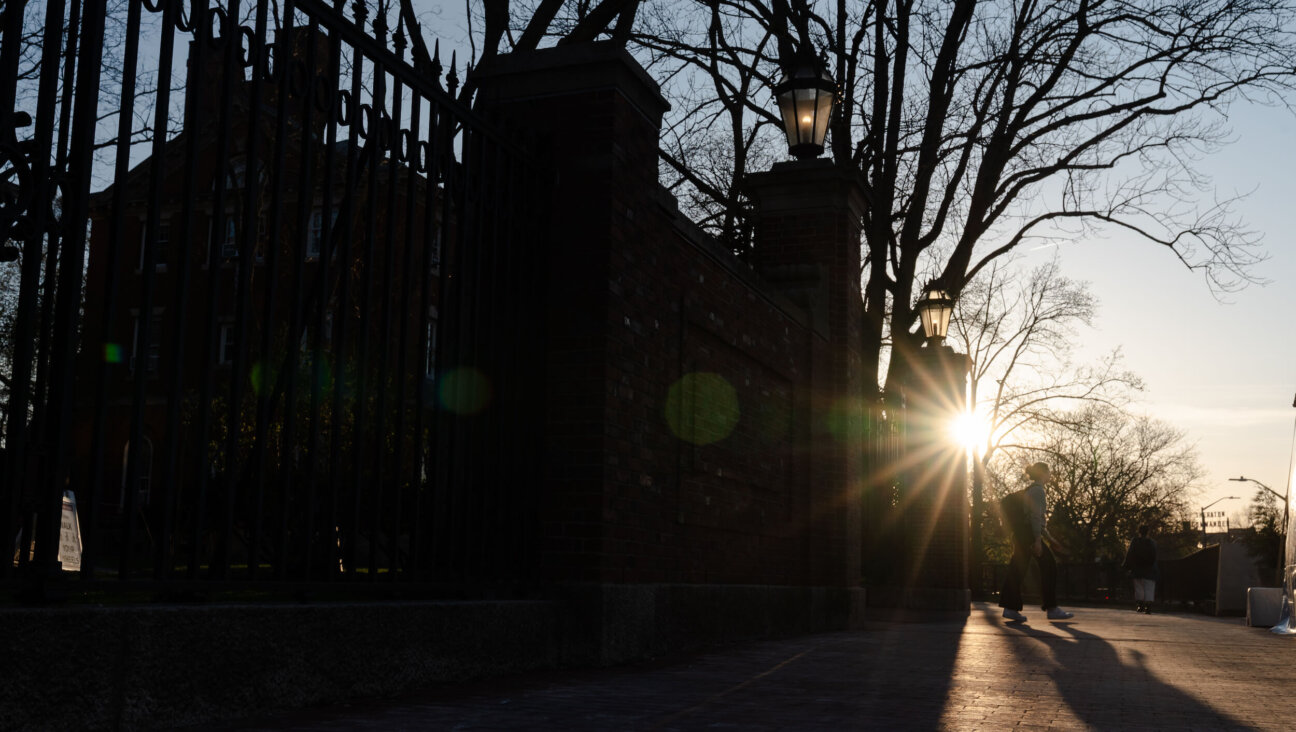
Opinion Why can Harvard stand up to Trump? Because it didn’t give in to pro-Palestinian student protests
-
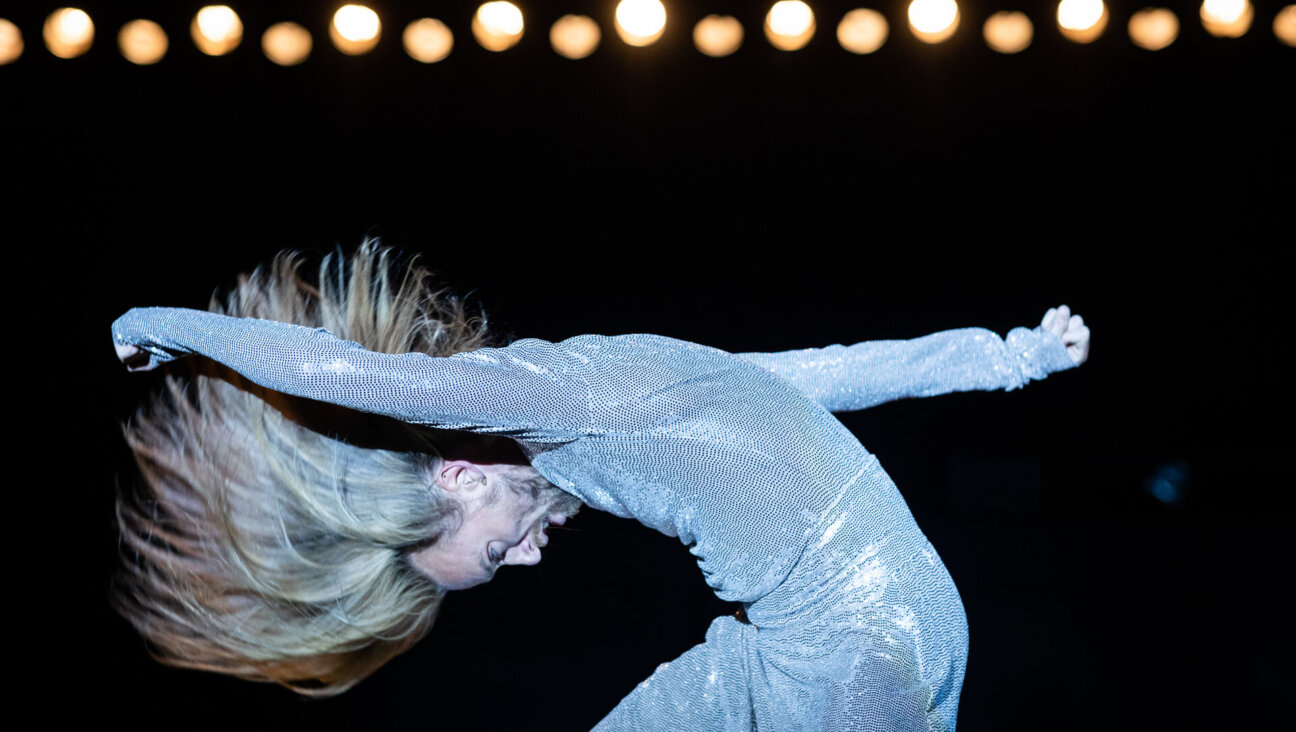
Culture How an Israeli dance company shaped a Catholic school boy’s life
-
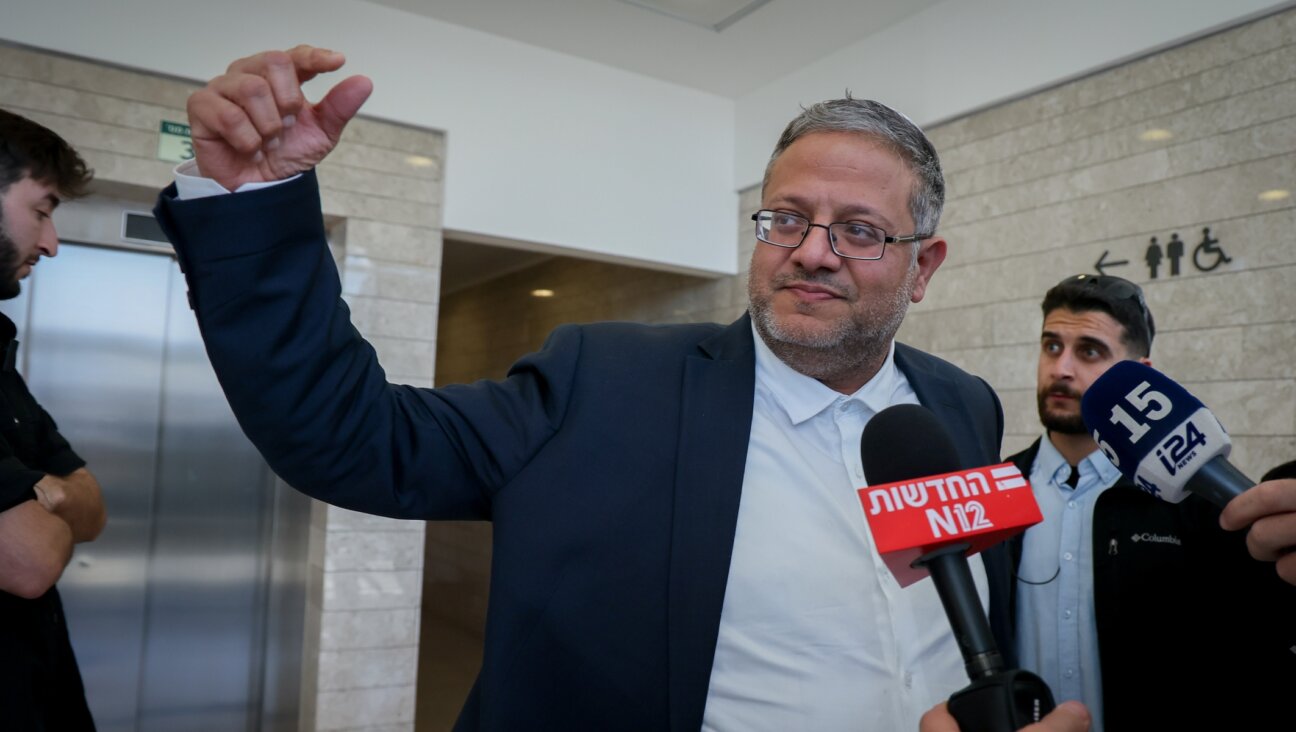
Fast Forward Brooklyn event with Itamar Ben-Gvir cancelled days before Israeli far-right minister’s US trip
-
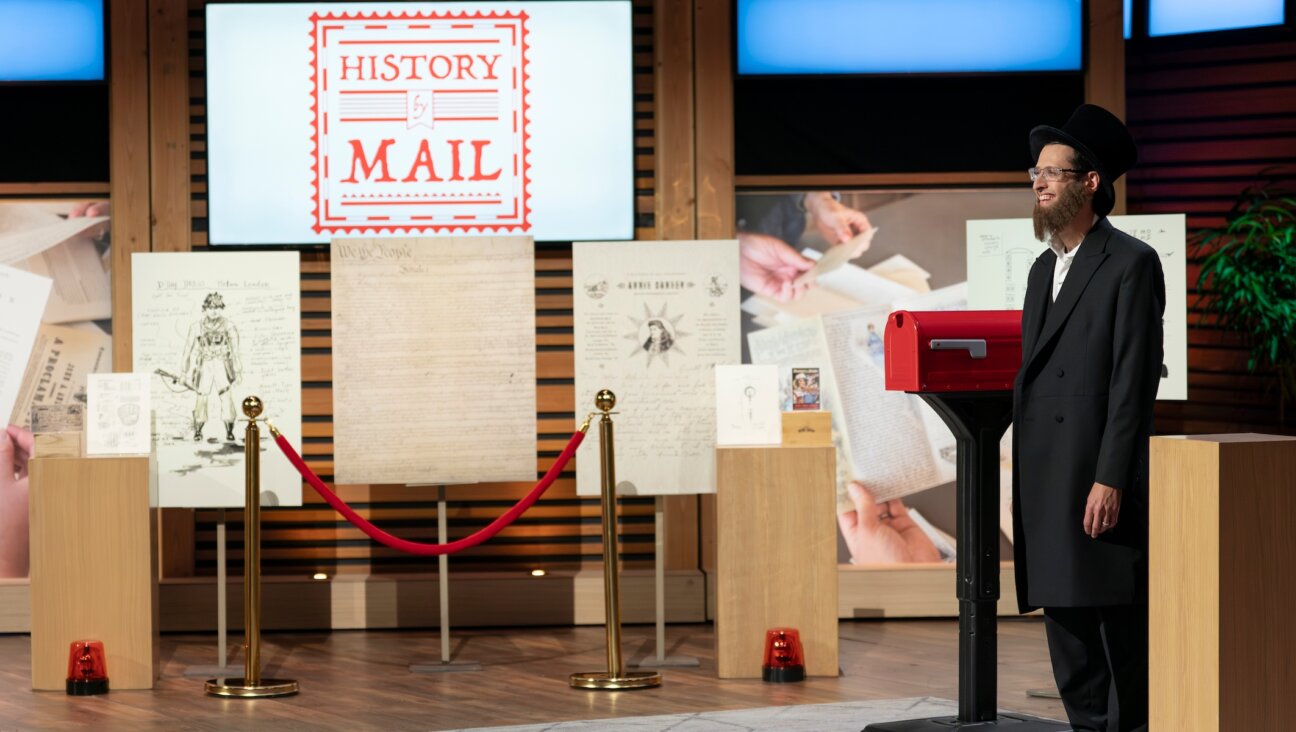
Culture How Abraham Lincoln in a kippah wound up making a $250,000 deal on ‘Shark Tank’
-
Shop the Forward Store
100% of profits support our journalism
Republish This Story
Please read before republishing
We’re happy to make this story available to republish for free, unless it originated with JTA, Haaretz or another publication (as indicated on the article) and as long as you follow our guidelines.
You must comply with the following:
- Credit the Forward
- Retain our pixel
- Preserve our canonical link in Google search
- Add a noindex tag in Google search
See our full guidelines for more information, and this guide for detail about canonical URLs.
To republish, copy the HTML by clicking on the yellow button to the right; it includes our tracking pixel, all paragraph styles and hyperlinks, the author byline and credit to the Forward. It does not include images; to avoid copyright violations, you must add them manually, following our guidelines. Please email us at [email protected], subject line “republish,” with any questions or to let us know what stories you’re picking up.





